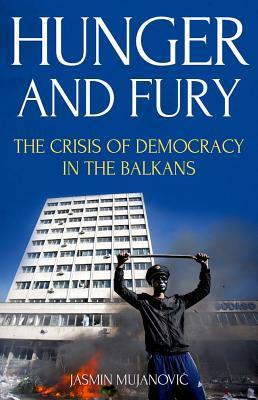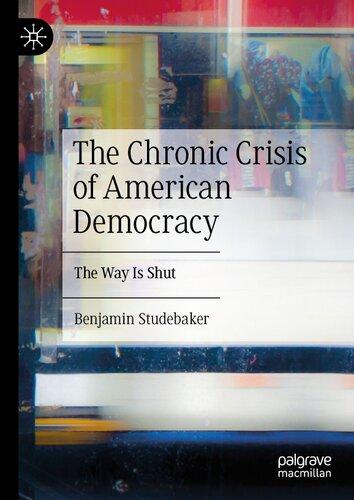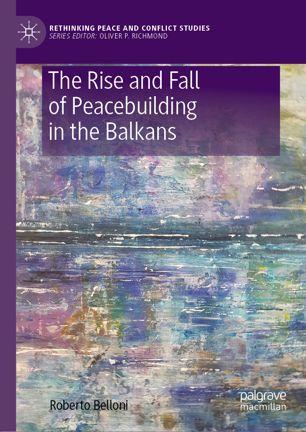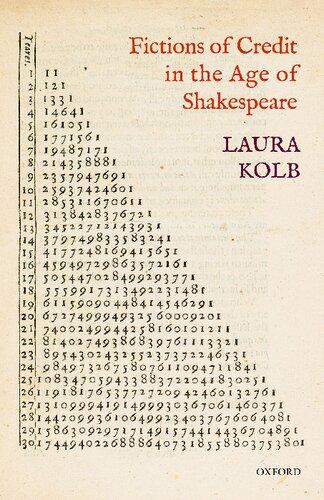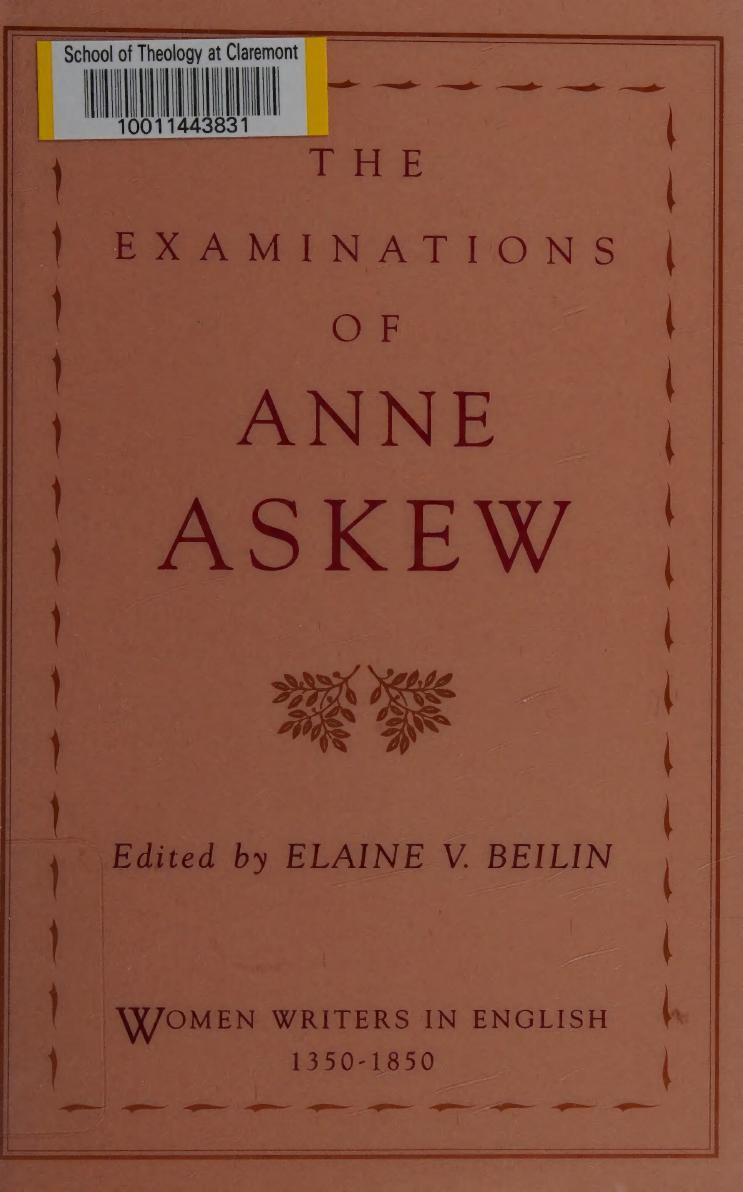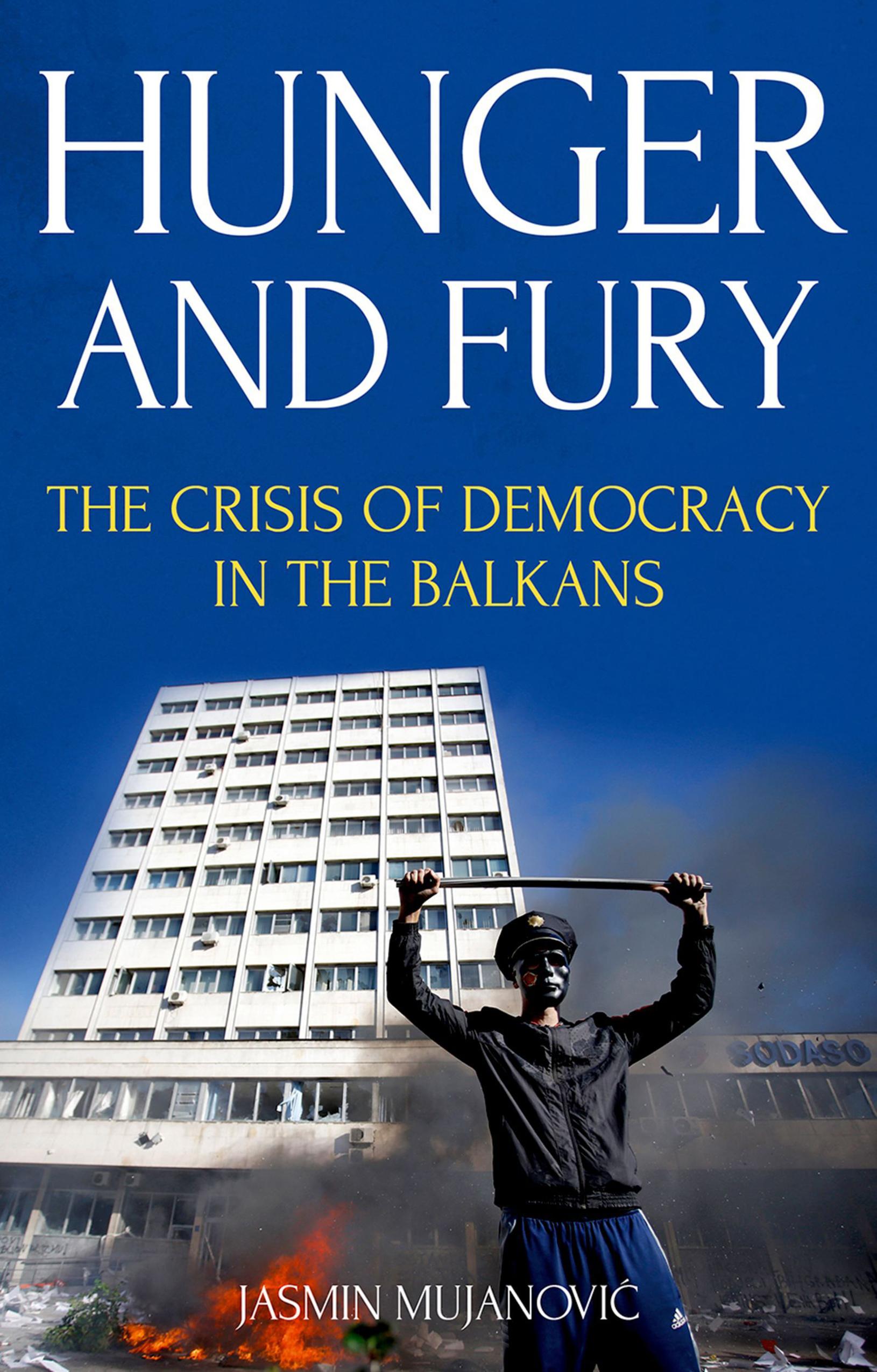JASMIN MUJANOVI Ć
Hunger and Fury
The Crisis of Democracy in the Balkans
AOxford University Press is a department of the University of Oxford. It furthers the University’s objective of excellence in research, scholarship, and education by publishing worldwide.
Oxford New York
Auckland Cape Town Dar es Salaam Hong Kong Karachi
Kuala Lumpur Madrid Melbourne Mexico City Nairobi
New Delhi Shanghai Taipei Toronto
With offices in
Argentina Austria Brazil Chile Czech Republic France Greece
Guatemala Hungary Italy Japan Poland Portugal Singapore
South Korea Switzerland Thailand Turkey Ukraine Vietnam
Oxford is a registered trade mark of Oxford University Press in the UK and certain other countries.
Published in the United States of America by Oxford University Press
198 Madison Avenue, New York, NY 10016
© Jasmin Mujanović, 2018
All rights reserved. No part of this publication may be reproduced, stored in a retrieval system, or transmitted, in any form or by any means, without the prior permission in writing of Oxford University Press, or as expressly permitted by law, by license, or under terms agreed with the appropriate reproduction rights organization. Inquiries concerning reproduction outside the scope of the above should be sent to the Rights Department, Oxford University Press, at the address above.
You must not circulate this work in any other form and you must impose this same condition on any acquirer.
Library of Congress Cataloging-in-Publication Data is available
Jasmin Mujanović
Hunger and Fury: The Crisis of Democracy in the Balkans
ISBN: 978-0-19087-739-2
Printed in the United Kingdom
For my grandparents, the revolutionaries
1. Clients and Brigands: The Origins of the State in the Balkans
The Warlords’ Peace: Yugoslavia’s End and Aftermath
Geopolitics and the Crisis of Democracy in the Western Balkans
ACKNOWLEDGEMENTS
The completion of this book is only partially the result of my own efforts. In fact, it is mostly the product of the support, patience, and mentorship of a constellation of people who have navigated me through this journey. As large segments of this text first saw the light of day as a dissertation at York University, my sincere thanks go first and foremost to Terry Maley, Daphne N. Winland, and Robert Latham for their intellectual and scholarly guidance, accommodation, and vigour. Each of them read my original project through a different lens and each of them improved it infinitely as a result. Their generosity in supporting my, at times, rather unorthodox ruminations made the entire endeavour of obtaining a PhD a rewarding challenge rather than a punishing trial, for which I am genuinely grateful. And they likewise deserve credit for allowing me to craft an academic treatise that has lent itself relatively easily to reanimation as a text for a wider audience.
I am also indebted to a broader community of scholars and experts who have significantly improved my analytical capacities through their mentorship and friendship. Dejan Guzina and Amila Buturovic were key to the original phase of the project at York, while Adis Merdzanovic and Kurt Bassuener showered early drafts of the book version with generous and much needed critique. For his part, Eric Gordy has been a patient counsellor and, like Dr Maley, Dr Winland, and Dr Latham, a still more patient letter writer. I am also obliged to thank Toby Vogel, an incisive analyst in his own right, for making the initial introductions with Michael Dwyer. Mr Dwyer, in turn, has afforded me the greatest courtesy in putting together this work, and his team at Hurst Publishers has been professional and supportive throughout.
There is also a broader universe of folk whose friendship (and vulgarity) has sustained me for the past two decades. In Vancouver, these are Dejan Preradović, Nikola Mitrović, Ognjen Đukić, and Nenad Knežević. In Sarajevo, they are Emir Efendić, Gorana Dedić, Emin Eminagić, and Damir Imamović. Strewn across the rest of the world are also Dario Čepo, Kole Kilibarda, Tea Hadžiristić, and Francisco de Borja Lasheras.
The role my parents and family have played in this undertaking is difficult to encapsulate, no less so the significance of its completion in their eyes. My parents’ eternal dedication, bravery, and sacrifice for their family is something I have only grown more awed and humbled by with age. I am especially blessed by my sister, to whom I have scarcely often enough expressed gratitude for her friendship and affection, and my niece Ayna. Though still the littlest member of our tribe, she has shown outsized courage and wisdom in her young life already. It has been from Elise Wang, however, that I have learnt the finer points of functioning personhood. Where I middle at opining, she is the true scholar. And though her every accomplishment fills me with immeasurable pride, I still hold that she deserves more than the world has to offer. Above all, she is my friend, always, an exhausting feat for which I am eternally in her debt.
Because I am graced by them all, the reader will recall that all errors, typos, and gross generalizations in this text are solely my own.
March 2017
ABBREVIATIONS
BiH – Bosnia and Herzegovina
CPY – Communist Party of Yugoslavia
EAEU – Eurasian Economic Union
ECHR – European Court of Human Rights
EEC – European Economic Community
FBiH – Federation of Bosnia and Herzegovina
FRJ – Federal Republic of Yugoslavia
FPRJ – Federal People’s Republic of Yugoslavia
HDZ – Croatian Democratic Union
ICTY – International Tribunal for the Former Yugoslavia
JNA – Yugoslav National Army
LCY – League of Communists of Yugoslavia
NATO – North Atlantic Treaty Organization
NOP/NOB – National Liberation Movement
NRS – People’s Radical Party
OHR – Office of the High Representative
OSCE – Organization for Security and Co-operation in Europe
RS – Republika Srpska
SDA – Party of Democratic Action
SDP – Social Democratic Party
SDS – Serb Democratic Party
SDSM – Social Democratic Union of Macedonia
SFRJ – Socialist Federal Republic of Yugoslavia
SNSD – Alliance of Independent Social Democrats
UAE – United Arab Emirates
UK – United Kingdom
US – United States of America
VMRO-DPMNE – Internal Macedonian Revolutionary OrganizationDemocratic Party for Macedonian National Unity
WB6 – Western Balkan Six
ZL – United Left
INTRODUCTION
The parliamentary regimes of southeastern Europe are in crisis. Left to teeter and wobble much longer, these regimes will dissolve entirely and, with them, the tenuous peace that has held the Balkans together since the conclusion of the Yugoslav Wars (1991–2001). With Greece still on the brink of financial catastrophe, and Turkey in a headlong rush towards outright autocracy, all that stands between the prosperous, stable core of Europe and the chaos of Syria and Iraq is a string of economically stagnant and politically volatile polities wedged between the Adriatic and the Bosphorus. However, the heart of my argument – both geographically and thematically – concerns the specific crisis of democracy in the states of the former Yugoslavia. The accession of Slovenia and Croatia to the European Union (EU) in 2004 and 2013 respectively has been celebrated by policymakers in Brussels and Washington as definitive proof of the region’s fundamental transformation. Indeed, missives from the Union regularly remind the leaders of the region’s remaining prospective member states that the EU is the “only game in town”. On both points, this book contends otherwise. The process of Euro-Atlantic integration (i.e. EU and NATO membership) in the Balkans has not significantly altered the structural dimensions of the region’s prevailing political and economic dynamics. Politically, the post-Yugoslav Balkan elite are still a band of oligarchs. They are survivors of the collapse of one-party rule and decidedly
authoritarian in orientation, despite the proliferation of nominally competitive multiparty elections and parliamentary institutional arrangements across the region. Their economic policies, meanwhile, remain rooted in clientelism, corruption, and dispossession: a system that has elsewhere been referred to as “kleptocracy”.1 The coercive power of the state is still the primary means of accumulation for Balkan elites, allowing them to continue to govern as warlords even in an era of peace. Since 2012, however, in reaction to both the bankruptcy of Western democratization efforts and the retreat of local elites from even nominal commitments to accountable and responsive democratic governance, a wave of new grassroots social movements – from Slovenia to Bosnia-Herzegovina (BiH) to Macedonia – has dramatically realigned politics in the former Yugoslavia. In their wake the essential cleavage of contemporary Balkan politics has become the determined attempt by insurgent mass movements to topple the entrenched, oligarchic elites of the region, who alone in the sea of former communist regimes in Europe successfully navigated the collapse of the Cold War order without ever actually losing power.
I refer to this combination of oligarchy and criminality – a central feature of the region’s general historical development – as “elastic authoritarianism”: the process of persistent ideological mutation contrasted with static political and economic patterns, through which local elites have deliberately stunted social transformation processes in the Balkans since the nineteenth century. As a result, the basic contention of this book holds that Western2 democratization policy in the former Yugoslavia was and remains fatally flawed in its reliance on the willingness of local leaders to abandon authoritarian and clientelistic patterns of rule, patterns that have kept them, their predecessors, and their peers in power for generations. Instead, genuine democratic transformation depends on the ability of popular, grassroots social movements to contest, challenge, and eventually topple recalcitrant authoritarian regimes or regime elements.
In the Western Balkans,3 such movements with such power have only begun to appear in the last four or five years.4 The belated appearance of these social ruptures, however, is not merely the result of the violent dissolution of Yugoslavia but is instead rooted in the aforementioned generational patterns of state formation and dissolution in the
region. As a result, we are only now, at the tail end of the second decade of the twenty-first century, witnessing the kinds of social confrontations that have elsewhere in Europe marked the end of authoritarian rule.5 Accordingly, and in contrast to the majority of the academic, policy, and popular analyses of post-Yugoslav politics, this book contends that democratization, in any meaningful sense of the term, has yet to occur. Ultimately, this work suggests that unless “regime change” is a local, bottom-up exercise, driven by organic social mobilizations, it is unlikely to be decisive or lasting, or to occur at all.
By insisting on a grassroots, participatory conception of democratization, this work rejects both the institutional and elite-focused approaches of preceding studies and accounts of post-war politics in the former Yugoslavia. Their concentration on the shibboleth of EuroAtlantic integration has left them unable to process the recent crisis of governance in the region’s EU and non-EU member states alike and their intimate relationship, in turn, to the origins of the state form (and its elastically authoritarian bent) in the Balkans as a whole. Moreover, this narrow focus has largely blinded them to the fact that the Balkans are no longer a site of active Western democratization efforts. Instead, the EU and United States (US) are increasingly being eclipsed in influence by resurgent authoritarian regimes, with Russia chief among these. For their part, local elites have eagerly embraced this exchange of benefactors. After all, in place of Western “conditionality” – the exchange of financial and development aid for political and economic reforms –Moscow, Beijing, and Ankara (among others) in fact prefer and actively encourage the recalcitrant authoritarian tendencies of local leaders.
The Balkans are thus not merely a passive terrain for the clash of empires, or a swamp of “ancient ethnic hatreds”, as Robert Kaplan notoriously characterized them in his 1993 bestseller, Balkan Ghosts. 6 Instead, this book contends that the region is a vibrant space of social and political contestation in which substantive democratization processes are just beginning. And as much as it is an area of geopolitical confrontation, it is also a space of agency, in which local struggles will have global consequences. Therefore, rather than being peripheral or marginal to our thinking about the changing tides of European and global affairs, the Balkans and their history are in fact central to both.
And in this moment of historic geopolitical realignment, this book intends to harness the incredible explanatory power of two lines of striking graffiti to make sense of events in Europe’s neglected corner and thereby in the continent in its entirety. Still scrawled on the walls of BiH’s central government complex in downtown Sarajevo more than three years after the buildings were ransacked and torched by disgruntled masses of citizens, the words read simply: “sow hunger, reap fury”. Like the revolutionary slogans of previous eras, while the hunger is local, the reach of the fury is wider, far wider.
Before we proceed, it bears explaining specifically what the terms “democracy” and “the state” mean in the context of this book, as these concepts are so often misunderstood, especially in the Balkans. This explanation will also make clear why the historical outlook of this book must be relatively long, even as the primary focus remains the contemporary crisis of democracy in the region.
On Democracy and the State
To begin with, there is the matter of certain archaic terms that are peppered through this text (i.e. “demos”, “plebes”, “polis”, and “agora”). The use of these lynchpin concepts in democratic political theory in this context may seem somewhat peculiar since one of the central claims of this text is that state and political development in southeastern Europe has been differently constituted from the development of these institutions and norms in the West. Does it even make sense to speak of the demos in the Balkans if, as this book claims, a substantive sense of democratic citizenship remains unrealized in the region? The aim here is not to provide for a theory of citizenship in southeastern Europe, however, and in any case that task has already been undertaken more ably elsewhere.7 Nor is the aim to deviate very far from the established understandings of these terms as proposed by other democratic theorists. Martin Breaugh, for instance, suggests a definition of “plebes” that is both refined and functional: “‘The plebes’ is the name of an experience, that of achieving human dignity through agency. The plebes designates neither a social category nor an identity but rather a fundamental event: the passage from a subpolitical status to one of a full-fledged political subject”.8 Breaugh argues that the plebes are not
like the demos because the former has always been a pejorative term for those who were insurrectionary and revolutionary in their demands for popular power, while the demos were reformist and institutional, citizens in the most conservative sense, who sought to be granted representation by their supposedly benevolent elites.9 Moreover, the plebes were specifically those who composed the Roman underclass but who, through a series of popular revolts, won for themselves greater rights. In the process they realized their own agency as a collective and ushered in what Breaugh refers to as a “discontinuous tradition of political freedom”.10 This is a concept akin to the political theorist Sheldon Wolin’s “fugitive moments” of democracy – episodic articulations of genuine collective deliberation and agency – to which I turn in a moment. Breaugh’s insistence on the crucial difference between the plebes and the demos, on the difference between the “many” as a dangerous rabble and the “people” as a refined, conservative audience, is convincing. And indeed, much of what this book proposes as a requirement for democratic renewal in the Balkans is just that: the presence of a dangerous, politically conscious rabble. While such a radical participatory conception of democratic governance may appear functionally impossible in contemporary mass societies, it has remained a constant motif of democratic theorists: a perpetual search for perfect inclusion. More practically, for democratic theorists, who disproportionately hail from the comparatively “deeply” democratic West, citizenship remains a work in progress. It is a concept that even since the end of the Cold War, for instance, has deteriorated under the pressures of rapacious neoliberal economics and mass surveillance and is today in need of resuscitation in both Europe and the US. In this observation, there is a point of contact with the situation as it exists presently in the Balkans and as it has developed throughout the period this book considers. Like Breaugh, Wolin, and others, this work uses the notion of the demos and plebes in an aspirational sense. And in this respect, I am less interested in a precise definition of these terms than I am concerned with a general theme: namely, conceiving of democracy as a process, as a participatory exercise that has both a life outside the parliament, a history before it, and one that ought to be intrinsic to any discussion – scholarly, policy-oriented, or for general
public consumption – that concerns itself with the process of postauthoritarian or post-conflict democratization.
The use of the term “citizens” in this book, on the other hand, is more technical: the citizens of the actually existing sovereign states in the region. And in between the potential Balkan demos and the reality of what passes for citizenship in the region today, there is the “obični narod” (ordinary people), a vulgar term perhaps within the annals of political theory but one that best approximates how the majority of the population in the former Yugoslavia think of themselves. Admittedly, the term is imbued with a certain kind of tragic pathos in the collective imagination of the region, a sentiment this work aims to actively subvert. But since this book is one invested in making legible the ideal of the plebes and the demos, of a participatory conception of democracy, I feel it is appropriate, even necessary, to use on occasion the lexicon of the people to whom I am trying to make this ideal legible in the first place.
In order to think about these Balkan citizens as emerging agents rather than victims of change, it is also necessary to situate this analysis in the context of existing debates about democracy, rather than what has elsewhere been referred to as “transitology”, the seemingly unending transitions of post-communist and post-war states since the end of the Cold War. Moreover, it is necessary to move away from the massive but narrow “war literature”,11 in which one can include the bulk of current scholarship that remains primarily invested in debates about the dissolution of Yugoslavia and the various experiences of that process.12 Both of these sets of literature have made tremendous contributions to expanding and moving studies of the Balkans beyond the essentialism of Robert Kaplan and his associates, who initially popularized the “ancient ethnic hatreds” thesis, which contended that the dissolution of Yugoslavia was inevitable because of the primitive, intractable, and almost “natural” antipathies between the various ethnic peoples of the region. But the task that remains concerns the future and not the past. While this text covers significant historical ground, it does so in order to illuminate the complex, generational structural dynamics from which contemporary democratic movements in the Balkans are struggling to emerge. In short, the book treads on some familiar historical ground but only to dislodge the traditional focus on the
“national question” with an examination of the political question in the Western Balkans.
Accordingly, it is this notion of “the political” that is central to understanding the disparate succession of regimes in the Western Balkans over the past century and a half, which have nevertheless shared at least one common trait. That is, they were uniform in their attempts at preventing the emergence of an autonomous Balkan civil society able to challenge elite power – a civil society that could contest state authority, and present democratic alternatives to the uniformly exclusionary and hierarchical machinations of existing and emerging elites. While some of these regimes were categorically anti-democratic, others, like the League of Communists of Yugoslavia (LCY) and the contemporary ruling establishment, have been nominally committed to some version of electoral democracy. But to appreciate the bankruptcy of their democratic commitments it is not sufficient to merely point to frequently hypocritical, discriminatory, or otherwise inept policy decisions. A serious critique of contemporary Balkan politics, and the corresponding crisis of democracy, requires a sober examination of the foundations of these polities.
One beginning is to distinguish between the common term “politics” and the more particular notion of “the political” in the context of the Balkans. Sheldon Wolin13 succinctly defines this difference, and clarifies its significance for any examination of democracy, in the following terms:
I shall take the political to be an expression of the idea that a free society composed of diversities can nonetheless enjoy moments of commonality when, through public deliberations, collective power is used to promote or protect the well-being of the collectivity. Politics refers to the legitimized and public contestation, primarily by organized and unequal social powers, over access to the resources available to the public authorities of the collectivity. Politics is continuous, ceaseless and endless. In contrast, the political is episodic, rare.
… In my understanding, democracy is a project concerned with the political potentialities of ordinary citizens, that is, with their possibilities for becoming political beings through the self-discovery of common concerns and modes of action for realizing them.14
What Wolin suggests is that democracy is a Janus-faced concept. It is at once the mantra of every government in the Western world and many others too, but what we understand by democracy has shifted dramatically over the centuries – with its most radical, participatory potentialities having virtually withered away completely. “Contemporary democratic governments”, writes Bernard Manin, “have evolved from a political system that was conceived by its founders as opposed to democracy”.15 Today, Wolin concurs, “what is actually being measured by the claim of democratic legitimacy is not the vitality of democracy in those nations but the degree to which democracy is attenuated so as to serve other ends. The most fundamental of these is the establishment and development of the modernizing state”.16
These accounts suggest that democracy exists in a fundamental tension with the state. The centralizing impulses of state-makers are different from the emancipatory aims of genuine democrats. And in so far as the latter can exist within the confines of the former, they can do so only through the continuous complaint, dissent, and insurrection – in the street and at the ballot box – of ordinary citizens against statemaking elites who not only can imagine the state without the agora and the parliament but, indeed, would prefer it. Still, if all states sequester the political, what is significant about the particular crisis of democracy in the Balkans today and why is it necessary to take stock of the particular origins of the Balkan state? Moreover, if all states are authoritarian with regards to the question of violence – that is, as Max Weber defined it, with regard to their monopolistic claim on the legitimate use of violence in society – why do social movements and robust, autonomous civil societies persist in many other states, including those in still emerging democracies, yet have been so late to arrive in the Balkans? To answer these questions requires us to examine, at least briefly, the particular socio-economic and political histories that have shaped the emergence of the state in the Balkans.
Theorizing the State in the Balkans
While it is not my intention to argue that societies do or should have a linear or familiar path of development (i.e. that liberal democracy or capitalism is the end of history), in attempting to make the case for a
democratic analysis of the state in the Balkans it is useful to follow the work of other democratic theorists who, nevertheless, focus primarily on the trials and tribulations of predominantly liberal democratic regimes. Their scholarship still offers a great deal of currency for the analysis of the development of the state and the crisis of democracy in the Balkans because, in a broad sense, the ideal of democracy has been a universal phenomenon even in societies where lived experiences of participatory governance have been few and far between.
Marx argued that “the executive of the modern state is nothing but a committee for managing the common affairs of the whole bourgeoisie”.17 That is to say, the state is a classed phenomenon and the class dimensions within the state inform its type and function. This should not be a particularly controversial thesis even if one rejects Marx’s broader analysis. But as a Western-style bourgeoisie or genuinely capitalist property relations have never truly emerged in the Balkans, the regional state form has never been bourgeois either; that is, it has never genuinely incorporated bourgeois political institutions and norms. In other words, while the political is sequestered in every state, it is not equally sequestered, or for the same reasons, in all states. Correspondingly, neither are the abilities of citizens to negotiate and challenge this sequestering akin in differently constituted states. Therefore, what is in this book referred to as the elasticity of authoritarianism in the Balkans is the result of particular, local social and historical factors that should inform any serious critique of the region’s contemporary politics. While contemporary Western Balkan states today broadly mimic the existence of certain liberal institutions (e.g. elected parliaments), the dominant political paradigm of these polities remains distinctly non-liberal, both in the dominance of nationalism as the primary ideological foundation for the state and in the prevailing political-economic practices whose primary purpose is to enrich the small band of state-building elites.
The relationship between the region’s peculiar political arrangements and specific patterns of economic accumulation is important and will be analysed in more detail in Chapters I and II. Suffice it to recall for now that exploitative economic practices exist in the West as they do in the Balkans. But in the case of the latter these practices are rooted in still largely coercive dispossession and looting, rather than
standard capitalist property relations based on exchange and profit maximization. Or put more simply, and to use a common post-Yugoslav scenario, whereas the Western capitalist will exploit his factory workers through coercively low wages and union-busting, the Balkan elite will dismiss their entire workforce and bulldoze the factory in order to strip and sell it off in parts. Thus the dominant economic (and political) class in the former Yugoslavia is at best a kind of lumpenbourgeoisie but more accurately a bandit (or baja) class.18 While they bear a resemblance to other post-communist oligarchs,19 the rise of these post-Yugoslav elites has been shaped by the ubiquity and, indeed, necessity of the bandit during war, and cemented through international legitimation.
Finally, the reified status of ethnicity in the canon of Balkan statehood – both in ethnically fractured polities and those in which enforced homogeneity is the norm (e.g. Croatia, Serbia, and Albania) – all but denies the concept of citizenship and certainly the ideal of the demos or the plebes. And historically, this “ethnic card” has been kept up the sleeve of ruling elites in the region even when the nominal ruling order was non-ethnically constituted. This was done in order to prevent the emergence of a popular participatory conception of politics and the political as rooted in the power and consent of the governed, rather than the power and force of the governors. In other words, nationalism has been an instrumental and constitutive element of the Balkan elites’ elastic authoritarianism. In these states the essential and exclusive ingredient of social cohesion is ethnicity and thus it is the only relevant category of identity. Despite the overt trappings of liberal democracy, there is no meaningful concept of a social contract that extends beyond or supplants banal invocations of blood and soil. As a result, contemporary Balkan states, despite their multiparty elections, negate the most fundamental aspects of democratic theory and practice alike: they reject the principle that genuine democratic regimes are the product of the participation, deliberation, consent, and agency of their citizens in both founding and administration.
In contrast to the primacy of the individual at the centre of traditional liberal democratic regimes, the preferred “ethnic majoritarian” interpretation of democracy (i.e. the pursuit of homogeneous ethnic enclaves under the guise of “democratic will”) by the Balkan political
elite – both today and at the moment of original state founding in the nineteenth century and again during the dissolution of Yugoslavia in the 1990s – is fundamentally anti-democratic and anti-participatory Though writing in the context of BiH’s peculiar constitutional order, the Bosnian political scientist Asim Mujkić’s argument applies to the region as a whole precisely because the same essential processes are at work throughout. That is, post-Yugoslav elites are committed to “presenting ethnos as demos, where ethnos act like demos thus … becoming an imaginary community of belongingness and connection”, where it is the figment of the ethnic community and the nation that embodies the principles of “representation, decision-making and law”.20 Ultimately, what becomes definitive proof of one’s appropriate ethnic identity is subservience to the ruling establishment.
That is how the authoritarian germ in the Balkans has persisted, through the adept incubation of nationalist tensions and resentments as engineered by local elites. After all, genuine democratic experiments are those that, on some level, attempt to challenge the state (or, at least, its existing incarnation) as the exclusive form of political association, and recognize that democracy is a practice, not a destination. In democratic societies the state is recognized as existing outside the citizens themselves and thereby existing only through their consent, a consent that is measured not merely through elections and referenda, but through continuous contestation and participation. Accordingly, the crisis of democracy which concerns this book is not merely the product of recent experiences of war and authoritarianism. It is a question of the prevailing political, economic, and social patterns that have shaped the emergence of these states and polities since the nineteenth century.21
Though it may at times read like a history of failure, especially in the context of the Balkans, the ideal and the aspirations of substantive democratic practice permeate this work. After all, no commentary on democracy could possibly foreclose the power of moments – “fugitive moments” as Wolin, again, frames them – in which the demos and the plebes are able not only to emerge but to truly affect change. Inasmuch as the democratic demands and aspirations of the Balkan peoples have been denied to them historically, it remains for the scholar and citizen alike to document these instances and to learn from them for future
moments in which more may be demanded and won. It is clear that failing to steer a new course has as its result only further despotism.
Outline
With these theoretical claims now established, a brief note is presented here on how the remainder of the book shall proceed. Broadly speaking, the book is divided into two major thematic sections, spread over four chapters. The first two chapters lay out the complex and historically constituted origins or “causes” of the crisis of democracy in the Balkans, while the last two chapters anticipate two possible “effects” of the re-emergence of similar political patterns in the contemporary period. The factors which shaped the initial emergence, and evolution, of the state in the Balkans are established in the first two chapters, while the renewal of elastic authoritarianism as a defining feature of contemporary regional politics, and the nascent civil society response to it, are addressed in the last two chapters. Thus, while the respective sections each deal with distinct historical periods and scenarios, they are closely linked thematically. At the very least, the reader will note the distinct similarities in the manner in which Balkan elites navigated and negotiated the end of imperial hegemony in the nineteenth and early twentieth centuries and their response to the contemporary crisis of global liberalism.
Accordingly, the discussion opens with a chapter examining the twilight of the Ottoman Empire’s hold on the Balkans at the end of nineteenth century in order to trace the origins of the local elites’ unique ability to survive and thrive through repeated moments of otherwise total regime collapse; and, moreover, to posit this moment of regime entropy and accompanying elite elasticity as a defining feature of the socio-political experience in the Balkans. But contrary to still canonical treatments of the Ottoman period in the Balkans, this work argues that it was not that the region “fell behind” the rest of Europe in socio-political development per se, hopelessly delaying the area’s democratic evolution in the mire of Oriental despotism. Instead, the region was arrested in its development by its own elites, who sought to preserve rather than reform key aspects of the previous imperial regime and especially their own role within it.

